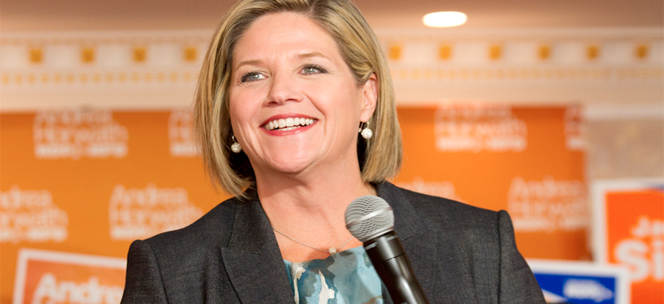Horwath invokes a sacred cow but delivers a load of bull

Previously published in the Hamilton Spectator
The problem with calling on sacred cows is that the result is often a load of bull. That’s what taxpayers got with the NDP’s not-so-bombshell release of leaked draft health-care legislation in Ontario.
On Jan. 31, NDP leader Andrea Horwath released draft health-care legislation her party had obtained through a leak from an Ontario bureaucrat. Horwath held a press conference where she outlined what she called the Progressive Conservatives’ secret plan to privatize health care.
It’s precisely these kinds of claims that make improving healthcare in Canada so challenging.
Any kind of change is brought before the sacred altar of public health care for judgment and it’s almost always condemned. And it is condemned whether or not condemnation is warranted, or whether the plan even actually involves any degree of privatization.
In the case of the NDP’s release, there wasn’t even a plan, let alone a plan for privatization. The NDP released incomplete draft legislation and some documents that had not even made it to the desk of Health Minister Christine Elliott.
But even if what was released could be called a plan, it doesn’t involve any privatization.
Horwath claimed the legislation includes a “specific mandate” for privatization. It doesn’t. Rather, the draft bill would allow the minister of health to “designate” certain hospitals or other health-care providers as an “integrated care delivery system”.
Horwath has claimed that because the “integrated care delivery system” section of the draft bill does not include an explicit prohibition against private or for-profit care, it’s a plan for privatization. But the lack of a prohibition is not the same thing as a specific mandate.
The main purpose of the reform effort is to eliminate the Local Health Integration Networks that were created by the Liberals. The public has been largely dissatisfied with LHINs, which have poured money into a mid-level health-care bureaucracy rather than spending it where it was needed, on front-line care. LHIN administration costs are thought to be more than $100 million.
None of this has stopped Horwath from attempting to whip the media and the public into a fury over privatization.
If the type of changes proposed in the leaked draft are going to trigger hysterics, what hope is there for real and much needed improvements to the health-care system?
Many aspects of the province’s system are already private. For example, many long term care homes are private, and about half of all medical labs in Ontario are run by private companies. Famously, there are private clinics in the province, such as the world renowned Shouldice hernia clinic where people from across Canada and around the world (including American and Canadian politicians) come to pay for hernia repair operations. As John Michael McGrath pointed out for TVO, asking the government to explicitly prohibit private health care in the draft legislation would be asking it to ignore the reality of Ontario’s current system.
And around the world, there are countries with health care systems with a greater private involvement that operate better than Canada’s system. The Commonwealth Fund, a New York Times panel of health policy experts and the prestigious medical journal The Lancet have all ranked Canada’s system amongst the worst in the industrialized world.
The United Kingdom, Australia and the Netherlands have health-care systems that the Commonwealth Fund has ranked as the top three. They are performing better than our system, they all have universal coverage, and they all have some level of private involvement in health-care services. They are hardly the nightmare “American-style medicine” scenario that Horwath has been talking about.
It would do our province and patients some good if we looked at ways different funding and delivery models could improve our system rather than constantly calling on the sacred cow of public universal health care.